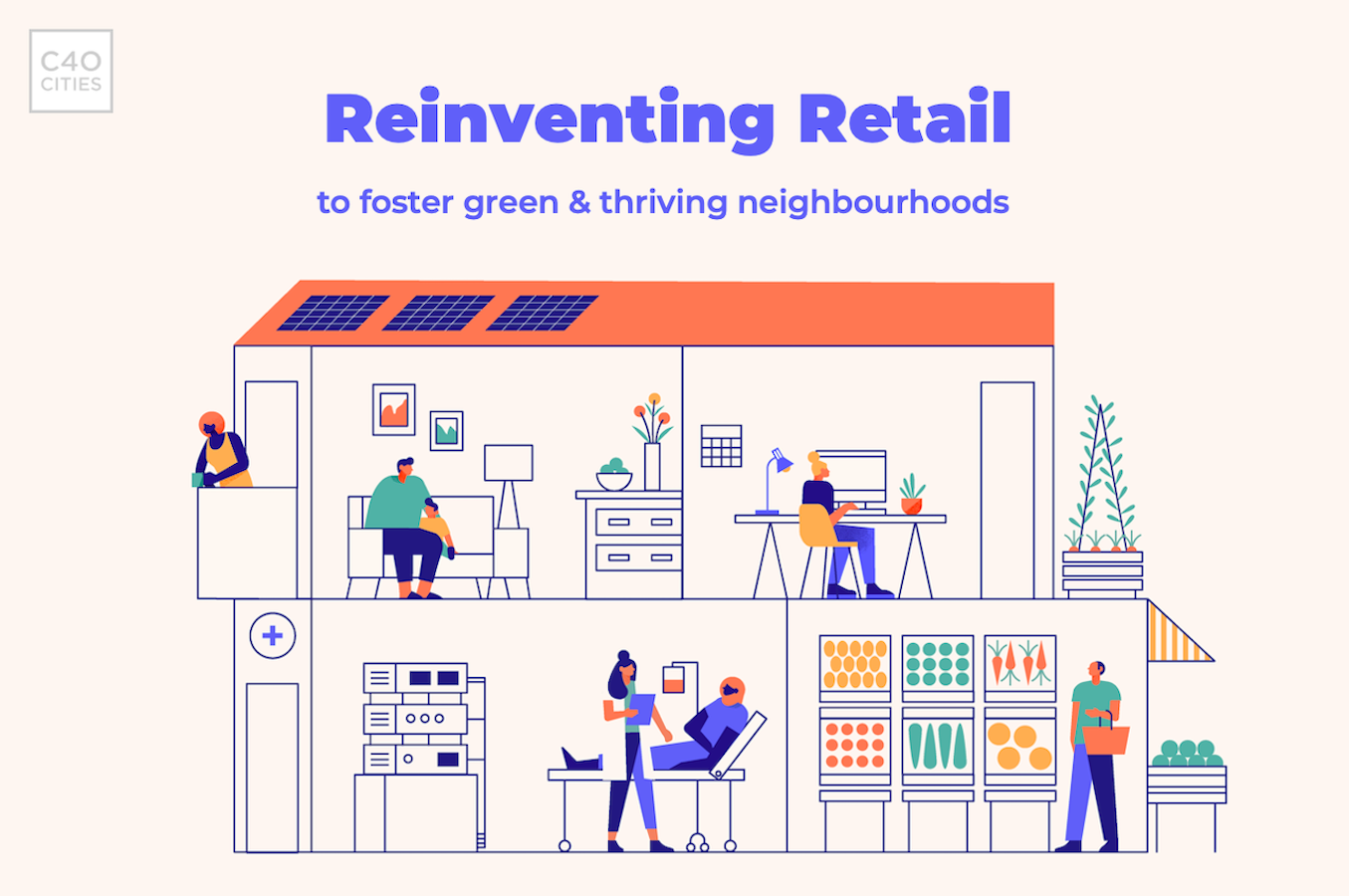How cities can support sustainable local retail activities and can collaborate with businesses to foster a green and just recovery from COVID-19. Hear from Emmanuelle Hoss, Clara Fayard, Remco Hempenius, Sudhir Suri, Pierre-Luc Dumas, Stephane Cote and Josee Chiasson.
Please find the recording of the webinar below and the slides here.
During the webinar, we aimed to analyze the topic through a multi-angle approach:
How cities can support their local shops to thrive
How global retail businesses can curb their GHG emissions and propose a model of retail that fosters thriving streets and neighborhoods
How innovative urban projects can act as catalysts for sustainable consumption habits
During the webinar, we aimed to analyze the topic through a multi-angle approach:
How cities can support their local shops to thrive
- Paris created Semaest, a semi-public agency that supports independent local shops by preempting and renovating premises, looking for tenants, keeping rents low and progressive, and providing tailored support and training. Their actions target specific neighborhoods identified by the City, where local shops are at risk; and focus on specific types of retail including bookstores and cultural businesses; creative craft activities; and retail with high social and environmental benefits such as local manufacturing, short circuits, shops with circular economy approach, zero waste and fair trade stores.
- Interventionist policies developed by the City of Montreal, including communication and crowdfunding campaigns to support 'local shopping'; the Colibri initiative which is an urban, ecological, pooled delivery system made available for local businesses to promote zero-carbon delivery; various initiatives to improve the customer experience in public spaces; finally, the city is developing a circular economy road map.
How global retail businesses can curb their GHG emissions and propose a model of retail that fosters thriving streets and neighborhoods
- IKEA aims to become climate-positive by 2030 and is developing a very ambitious strategy to minimize footprint throughout their entire business chain: materials used for their products, production process, transport and delivery, products' end of life, operation of their buildings and food they sell in their restaurants and stores. Learn more about IKEA climate strategy here.
- The firm is also rethinking its business model to get closer to urban residents, by proposing new types of shops with different formats/sizes and better connected to public transport; and shops that are well-integrated in the urban environment and mixed with other local stores and services. IKEA presented three concrete examples from their stores, namely Wien Westbahnhof in Vienna, Hammersmith in London, and Brooklyn, NY.
How innovative urban projects can act as catalysts for sustainable consumption habits
- The Demain Montreal team develops a commercial circular economy hub in Montreal. The project is dedicated to low carbon consumption and includes zero-waste grocery stores and restaurants; a circular Fablab for recycling and repairing goods; 400,000 Kg of on-site food production through orchards, indoor farming & 80 new jobs dedicated to urban farming; and educational programs for residents to promote sustainable behavior. The Demain Montreal team explained their ambitious objectives, as well as opportunities and challenges to develop such an innovative retail project in the time of COVID. Learn more about the Demain Montreal project here.
Documentation
Questions?
If you have a question or would like more details on the Reinventing Cities competition, please use the form below. You will receive a response via email.



